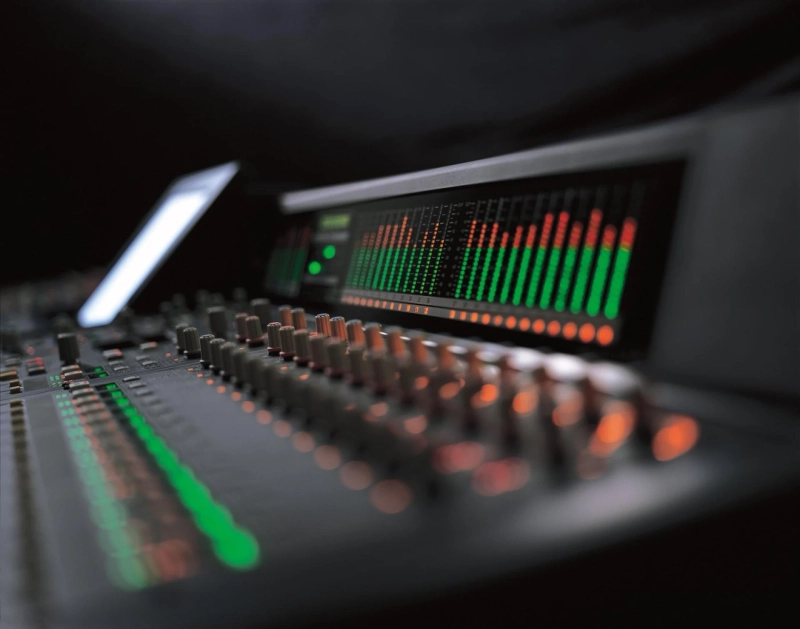Introduction
Mastering music is the final stage in the music production process, where an audio engineer takes the mixed audio and enhances it to make it sound polished, balanced, and ready for release. Mastering can make the difference between a good song and a great one, and it is an essential step for anyone looking to release their music professionally.
What is Mastering Music?
Mastering music is the process of taking a mixed audio recording and preparing it for release. It involves a variety of techniques and tools to enhance the overall sound of the recording, including equalization, compression, limiting, and stereo imaging. The goal of mastering is to make the audio sound consistent across different playback systems, and to give it a professional and polished finish.
Benefits of Mastering Music
Enhancing the overall sound quality of the recording
Making the audio sound consistent across different playback systems
Improving the overall loudness and punch of the audio
Enhancing the stereo image
Removing any unwanted noise or distortion
Preparing the audio for release on various platforms such as streaming services, CDs, and vinyl
The Mastering Music Process
The mastering process can be broken down into several stages:
Analysis: The audio engineer will listen to the mixed audio and analyze it to identify any issues that need to be addressed.
Equalization: The engineer will use equalization (EQ) to balance the frequency spectrum of the audio. EQ is used to boost or cut specific frequencies in the audio to make it sound more balanced.
Compression: The engineer will use compression to control the dynamic range of the audio. Compression is used to even out the levels of the audio and to add punch and impact to the overall sound.
Limiting: The engineer will use limiting to increase the overall loudness of the audio. Limiting is used to prevent clipping and distortion, and to give the audio a louder and more powerful sound.
Stereo Imaging: The engineer will use stereo imaging tools to enhance the stereo image of the audio. Stereo imaging is used to create a sense of width and depth in the audio, and to make it sound more immersive.
Final Touches: The engineer will make any final adjustments to the audio, such as removing any unwanted noise or distortion.
Checklist for Mastering Music
Analyze the mixed audio for any issues that need to be addressed
Use equalization to balance the frequency spectrum of the audio
Use compression to control the dynamic range of the audio
Use limiting to increase the overall loudness of the audio
Use stereo imaging tools to enhance the stereo image of the audio
Make any final adjustments to the audio, such as removing unwanted noise or distortion
Listen to the audio on different playback systems to ensure consistency
Use a reference track as a guide
Take breaks to avoid fatigue
Frequently Asked Questions
Q: Can I master my own music?
A: Yes, it is possible to master your own music, but it requires a good understanding of mastering techniques and tools. It is also important to have high-quality equipment and to listen to the audio on different playback systems. However, it is generally recommended to have a professional audio engineer handle the mastering process, as they have the experience and expertise to achieve the best possible sound.
Q: How much does mastering music cost?
A: The cost of mastering music can vary depending on the service you choose and the length of the audio. Some mastering engineers charge by the hour, while others charge by the track. On average, you can expect to pay between $50-$150 per track for professional music mastering.
Q: How long does mastering music take?
A: The length of time it takes to master music can vary depending on the length of the audio and the complexity of the project. On average, it can take anywhere from a few hours to a few days to master a single track.
Q: Do I need to master my music before releasing it?
A: Yes, mastering is an essential step in the music production process and is necessary for releasing your music professionally. Without mastering, the audio may not sound polished or consistent across different playback systems.
Q: Can you master different genres of music?
A: Yes, mastering engineers can master different genres of music, as the mastering process is the same regardless of the genre. However, some mastering engineers may specialize in certain genres and may have more experience and understanding of how to best approach mastering for those genres.
Q: Can you master music with a specific target audience in mind?
A: Yes, mastering engineers can take into consideration the target audience when mastering music. They can adjust the overall loudness and frequency balance to cater to the target audience's preferences.
Conclusion
Mastering music is the final stage in the music production process and is essential for releasing your music professionally. It involves a variety of techniques and tools to enhance the overall sound of the recording, making it sound polished, balanced, and ready for release. With the right equipment, techniques, and understanding of the process, anyone can achieve a high-quality mastered music. It's important to remember that mastering engineers are experts and have the experience and knowledge to achieve the best possible sound for your music, regardless of the genre and target audience.
0



